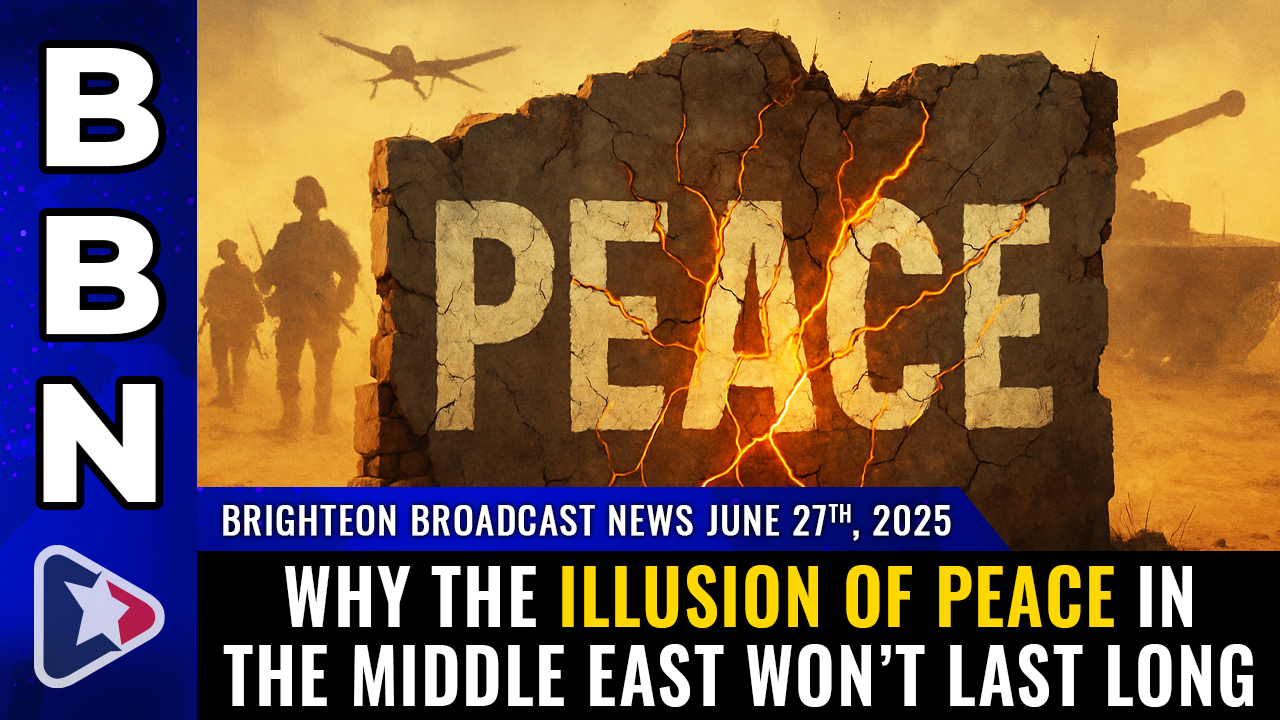 Parler
Parler Gab
Gab
- Major Policy Reversal: The Trump administration unexpectedly announced plans to lift sanctions on Iran and invest $30 billion in its nuclear energy program, shifting from confrontation to cooperation despite prior hostilities.
- Geopolitical Strategy: Analysts suggest this move weakens British and Israeli influence by empowering Iran as a counterbalance, with staged conflict "theater" masking covert U.S.-Iran collaboration.
- Israeli Fallout: The deal undermines Netanyahu’s hardline stance, exacerbating Israel’s economic crisis and political instability, while British-aligned factions allegedly plot provocations to reignite tensions.
- Economic & Global Bargains: The U.S. may secure rare-earth minerals from China in exchange for protecting Iran’s oil exports, prioritizing economic interests over ideological conflicts.
- Regional Realignment: Trump’s strategy positions Iran as an indirect U.S. ally against British-Israeli dominance, risking regional destabilization or covert power struggles, but altering Middle East dynamics overnight.
A Strategic Masterstroke or Betrayal?
Independent analyst Mike Adams, who first speculated about covert U.S.-Iran collaboration days ago, called the development "geopolitical judo." Adams argues the administration is maneuvering to weaken British and Israeli influence in the region by empowering Iran as a counterbalance. "Trump isn’t anti-Israel—he’s pro-Zionist but wants to control Israel," Adams stated, suggesting the move aims to force Netanyahu out and replace him with a U.S.-aligned leader. The policy shift follows what Adams describes as "theater for Zionists": the recent U.S.-Iran clashes involving carefully staged bombings of Iranian nuclear sites—strikes that, despite official claims, left Tehran’s stockpile of 60%-enriched uranium unharmed. By declaring victory while secretly enabling Iran’s nuclear ambitions, Trump may be executing a "noble lie" to de-escalate tensions and refocus on economic priorities, including stabilizing oil prices.Fallout for Israel and the "British Crown"
The deal delivers a severe blow to Netanyahu, whose government has long relied on U.S. backing for its confrontational stance toward Iran. With Israel’s economy hobbled by recent conflict—ports crippled, credit ratings slashed, and insurers refusing coverage—the U.S. lifeline to Iran amplifies Netanyahu’s political vulnerabilities. Israeli media has already erupted over the administration’s sudden pivot, with hardliners decrying it as capitulation. Meanwhile, Adams theorizes that the British intelligence apparatus—aligned with Netanyahu—is scrambling to reignite violence. Notably, the Tehran Times recently accused Israel of plotting a foiled false-flag attack on U.S. soil to implicate Iran, a claim that aligns with warnings from military analyst Michael Yon about Zionist extremists seeking to provoke war.Global Reactions and Hidden Agendas
Behind the scenes, the deal may hinge on a U.S.-China bargain: guarantees for Iran’s oil exports to China in exchange for Beijing supplying rare-earth minerals critical to American industries. This pragmatic trade-off underscores Trump’s focus on economic revival over ideological conflict. Yet risks abound. If Iran accelerates its nuclear weapons program—as Adams predicts—it could trigger capital flight from Israel and further destabilize the region. Netanyahu, facing corruption charges and ICC warrants, may double down on aggression to retain power, while hardline Zionists could escalate attacks on U.S. soil.Conclusion: A New Cold War Alignment?
The Trump administration’s gambit redefines Middle East alliances, positioning Iran as a tacit partner against British-backed Israeli hegemony. As Adams notes, "Trump is taking away the British Crown’s number one tool: chaos and war." Whether this bold realignment brings stability or fuels a shadow conflict between global powers remains to be seen—but for now, the rules of the game have changed overnight. Watch the June 27 episode of "Brighteon Broadcast News" as Mike Adams, the Health Ranger, talks about why the illusion of peace in the Middle East won’t last long. This video is from the Health Ranger Report channel on Brighteon.com.More related stories:
Trump announces ceasefire between Israel and Iran, but skepticism and confusion abound Trump: Nuclear deal with Iran UNNECESSARY as Tehran’s facilities already destroyed Trump faces scrutiny over deceptive Iran bombing plan as global tensions escalate Sources include: Brighteon.comBy Lance D Johnson // Share
EU to propose sanctions against Israel over Gaza human rights concerns
By Cassie B. // Share
Texas flash flood along Guadalupe River leaves 81 dead, dozens missing
By Ramon Tomey // Share
Russia becomes first country to officially recognize Taliban government in Afghanistan
By Laura Harris // Share
Governments continue to obscure COVID-19 vaccine data amid rising concerns over excess deaths
By patricklewis // Share
Tech giant Microsoft backs EXTINCTION with its support of carbon capture programs
By ramontomeydw // Share
Germany to resume arms exports to Israel despite repeated ceasefire violations
By isabelle // Share










